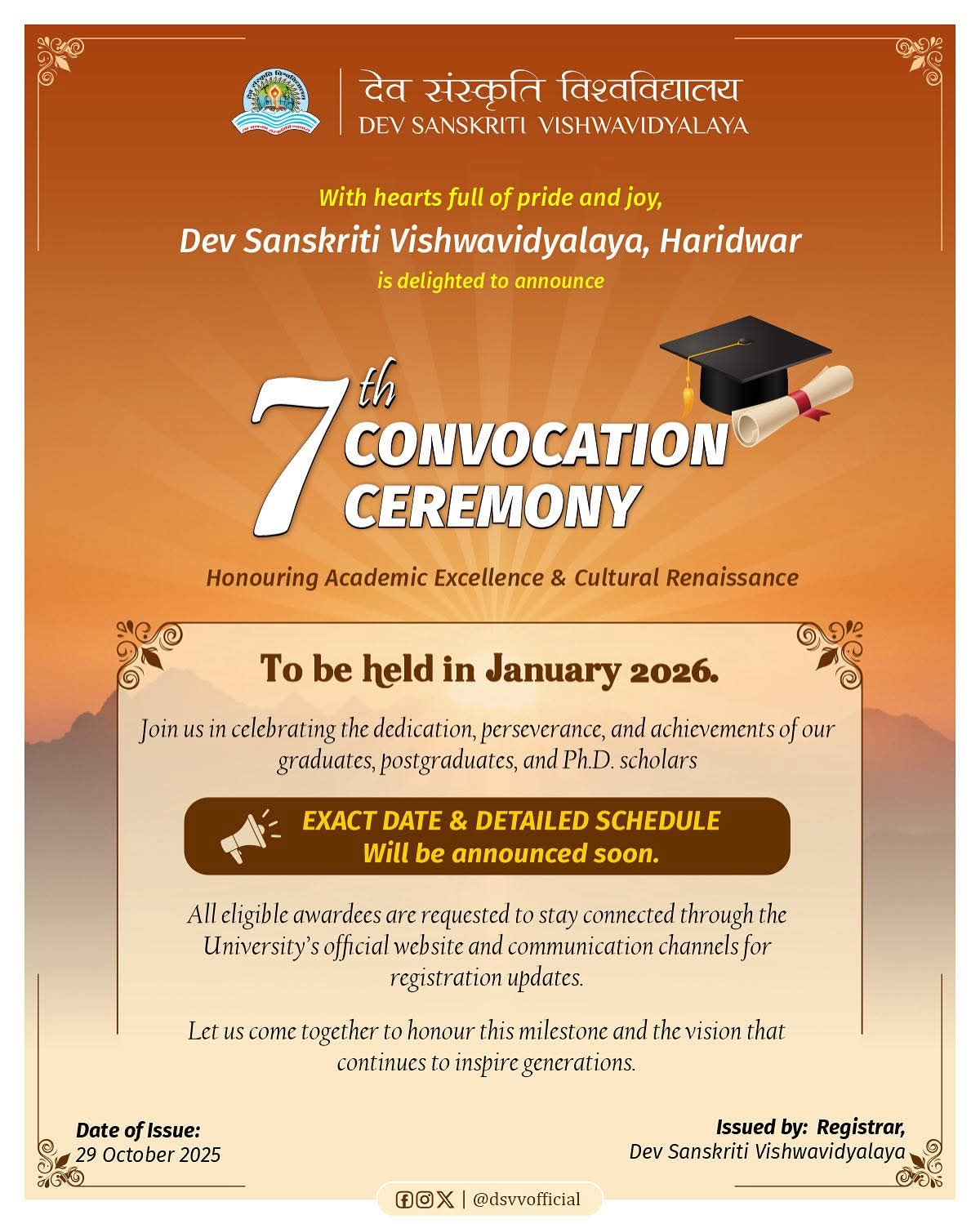Life at DSVV
Our Attractions
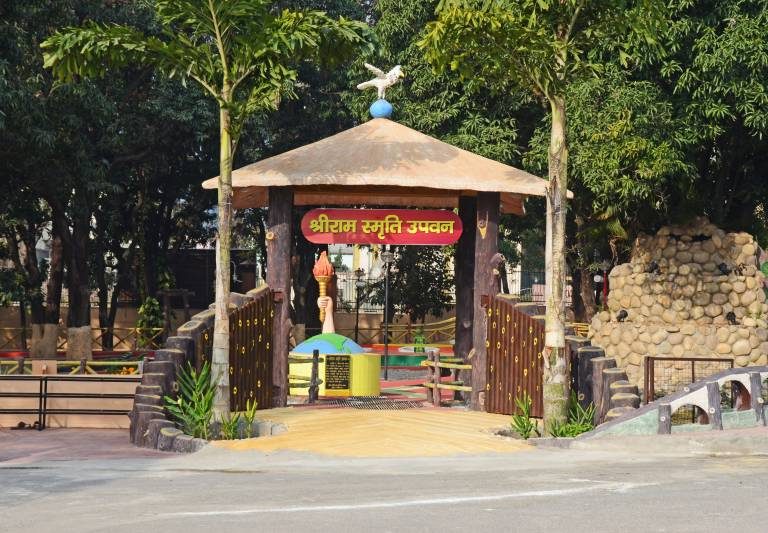
Sriram Smriti Upvan (Health Park)
Built in the remembrance of Pt. Shriram Sharma Acharya ji; in the year 2011, this distinctive health park is home to numerous labeled herbal plants. Alongside these medicinal plants is a ‘foot reflexology path’ created with various rocks primarily know as cobblestones. This path was meticulously crafted in order to stimulate the acupressure points of the feet. These points are connected to various energy meridians in the body which collectively enhance physical, emotional, and spiritual health. This park emotionally connects one to nature when they walk on the pathway or relax under the shadows of the therapeutic plants and trees.
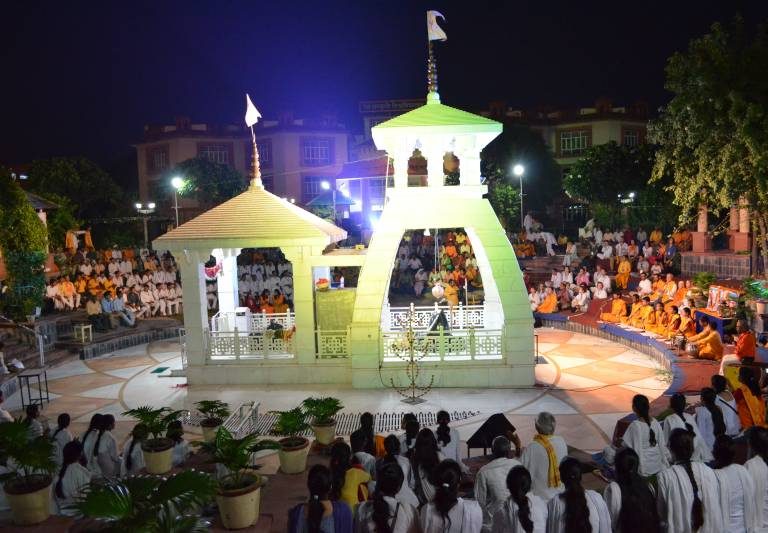
Pragyeshwar Mahadev Temple
The heart of the campus is an Amphitheatre with a Shiva Temple in the centre. The entrance is adorned with topiaries that are home to innumerable birds and squirrels. The surroundings are covered with tall trees and beautiful climbers that are filled with dainty flowers. This is an epicentre of positive energy and one can experience pure bliss in the vicinity.
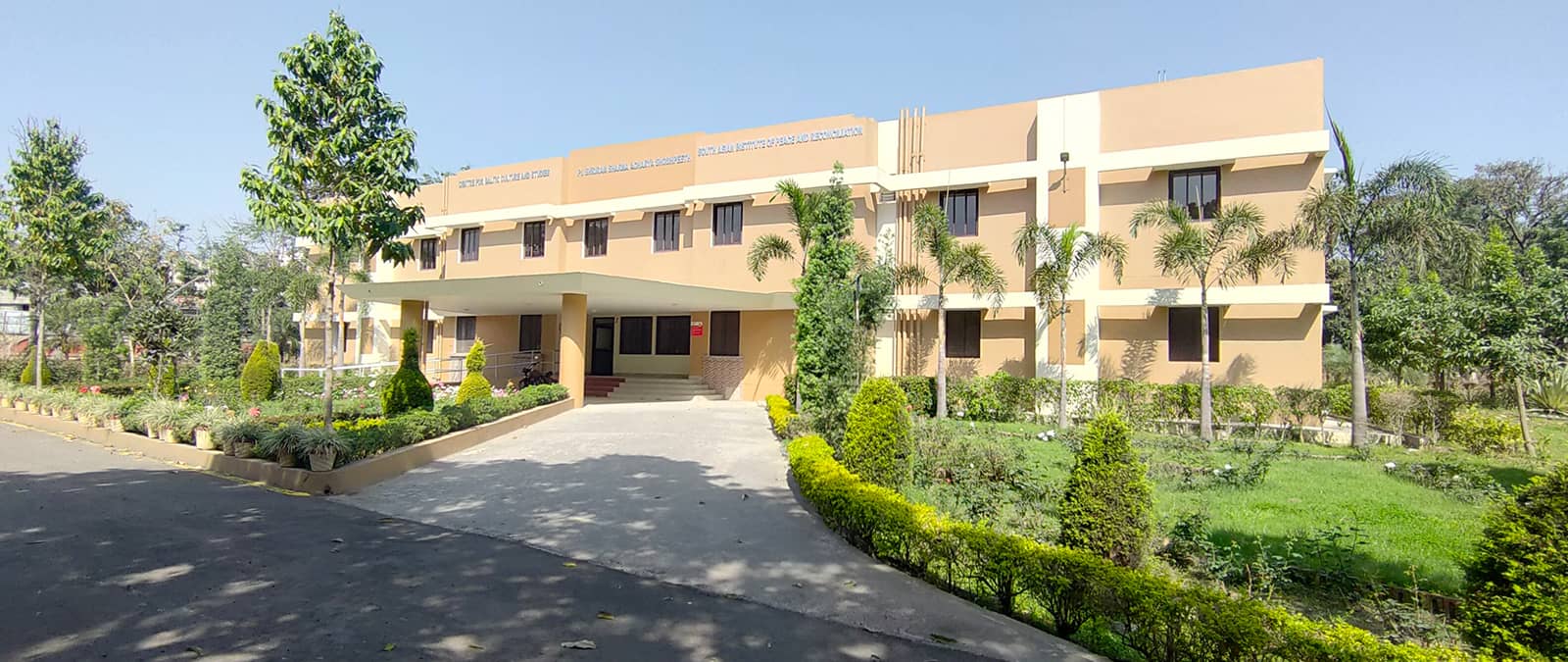
Centre for Baltic Culture and Studies
The Asia’s First Center for Baltic Culture and Studies (CBCS) was established in Dev Sanskriti Vishwavidyalaya on 7th August 2016 in the presence of the then-ambassadors of the three nations, the ex-governor of Uttarakhand and the Chancellor of the University. The establishment of the CBCS in DSVV aims to commemorate the unique cultural ties that India shares with the Baltic Nations. DSVV is currently one of the few universities in Asia to have more than 50 international collaborations with Universities in Baltic States and is still expanding.
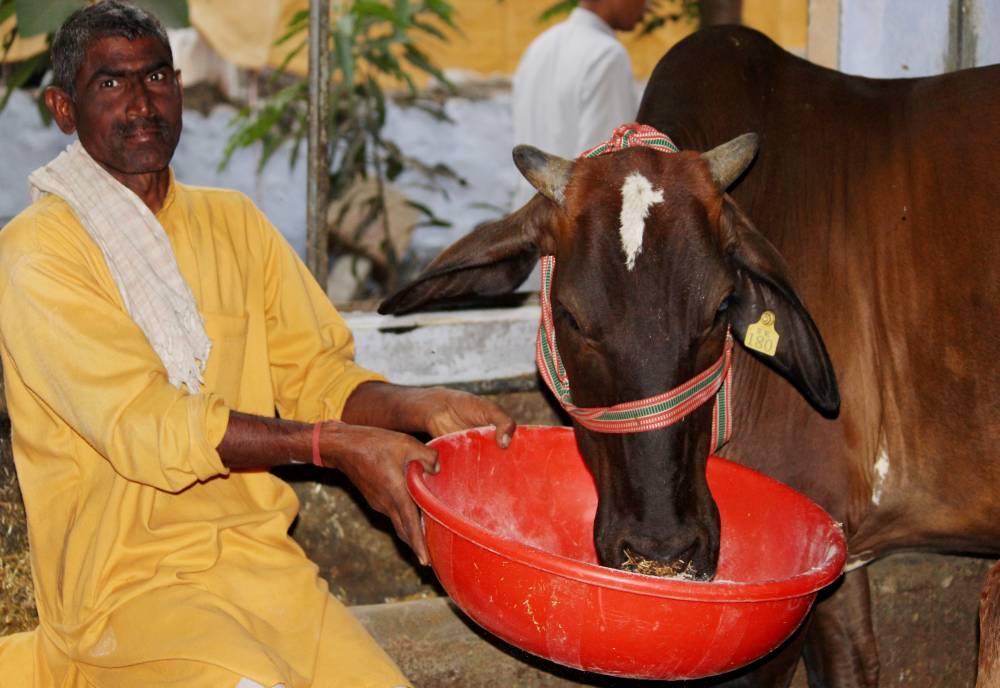
Gaushala
Cows are sacred to India as they are considered a symbol of life; they are also an asset to mankind. To conserve Indian culture and rare Indian breeds, the University has built a cow ranch for approximately 300 cows and their calves. The urine and dung collected from the cattle is used to make around 10 different products which have health and environmental benefits. The rural management department provides free training for people making cow-based products to help advance independent and local businesses.
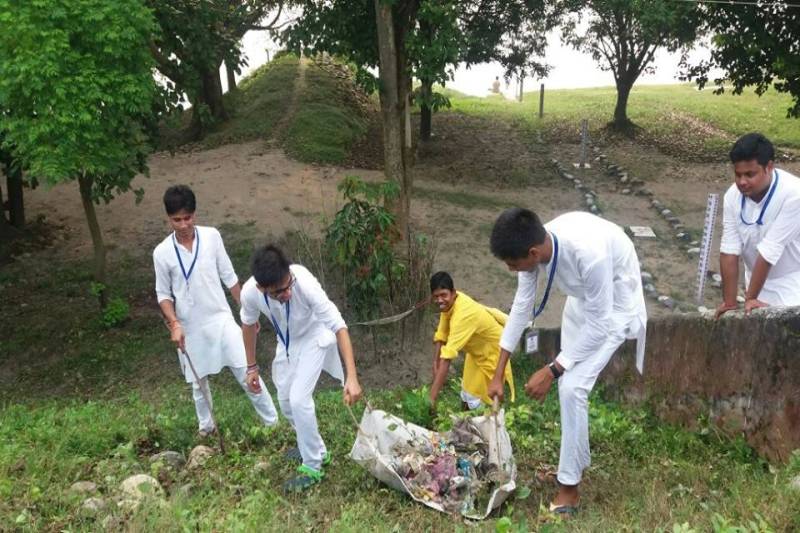
Social Internship
Self-refinement through Social upliftment and vice versa is one of the founding pillars of the university. This internship is a unique and compulsory feature, which offers the students to go out in the society to do community service in places such as societies, corporate organizations, and academic institutions (schools, colleges, etc.). The students organize health camps, awareness drives, religious ceremonies, de-addiction campaigns, personality refinement talks, workshops and conferences. This initiative helps shape the young minds and promotes the betterment of society. Students not only develop a sense of belonging but also a responsibility to work towards a better future. This is a process of mutual transformation and collective elevation. The students are trained under the Life Management course in various aspects of social service throughout their study period at the University.
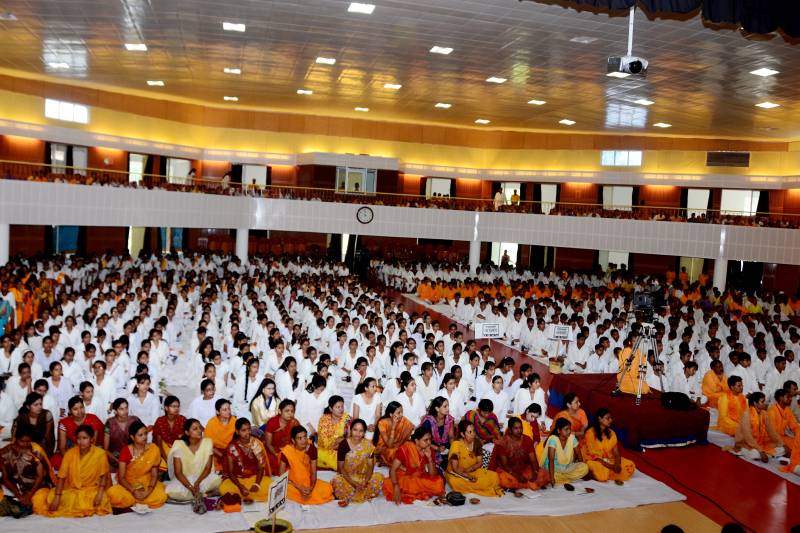
Gyan Diksha (Invocation Ceremony)
Gyan Diksha comes from two Sanskrit root words: Gyan meaning ‘knowledge’ and Diksha meaning ‘initiation’. This ceremony is carried out at the commencement of each semester to welcome the newly joined and, existing students, along with the faculty members to acquaint them to the ways and values system of the University. They are felicitated with an honorary scarf imprinted with the Gayatri Mantra to represent intellect and a Tulsi sapling to represent purity and how each one must aspire towards it.
Our Herbal Tea: Pragya Peya
This organic drink is caffeine free and an alternative to conventional tea and coffee. The mixture contains various herbal plants- widely used in Ayurvedic practice, including Cinnamon, Bay leaves, Fennel, and Sacred Basil.
This specific composition of herbs is rich in micro-elements such as essential oils, flavonoids, vitamins and places no hazard on the human body or the environment. The residue after preparing this drink can also be used as a fertilizer for plants, thus proving its benefits to individuals and the environment.
Vaidhshala (Astronomical Observatories)
The ancient Indian astronomical observatories located in several spots in the university are sighting devices that measure the position of the sun, stars and planets. These are useful in creating astronomical tables, calculating lunar calendars, and, predicting the beginning of specific seasons. To derive this data the position and orientation of the instruments and the calibration of their scales must be minutely exact. The students of theology study the workings and functionality of these observational instruments in their courses.
Self-reliance and sustainability modules
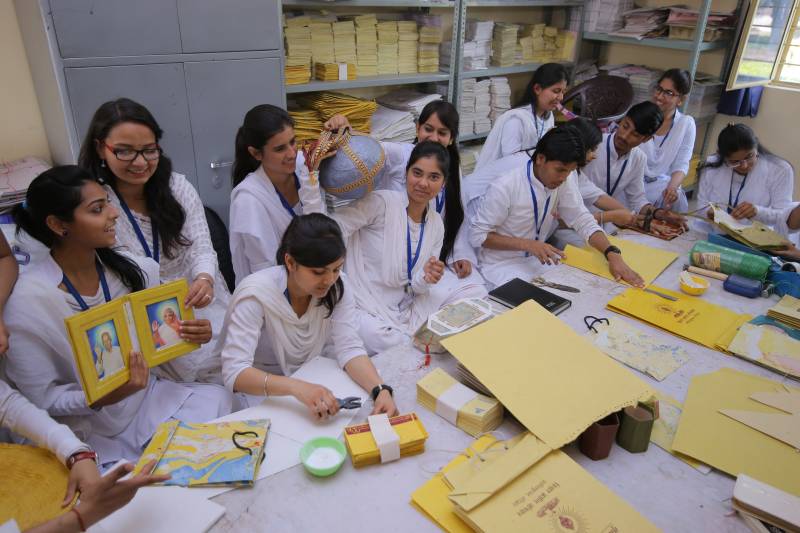
Srijna (Part-time corner)
Srijna comes from a Sanskrit word which translates to ‘creation’. This is an Earn while you Learn scheme where students make use of their free time to make creative and artistic products. Some of these products include greeting cards, candies made of organic jaggery and dry fruits, jute handicrafts, origami, rugs, tailored clothes and many more. The students can earn an allowance by donating their time and craftsmanship which in turn make them financially independent and self-reliant. Students can develop strong financial habits by recognizing the worth of each penny they earn.
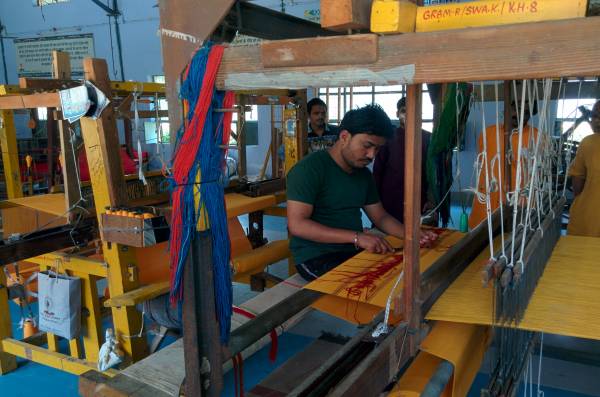
Handloom
Another model of self-sustenance is the handloom where high grade cloth materials and various products are manufactured from scratch. The process is mostly manual and some semi-automatic; even the looms are handmade from scratch by the University’s skilled artisans. Like the other products around the campus, these products too are sold at a no-profit, no-loss principal price. The threads are sourced from various parts of the country to get the perfect blend of cloth to create high quality products. Due to its remarkable quality the wear and tear is minimal and the cloth has a sustainable longevity. This helps in off-setting the waste of the fast- fashion clothing industry in order to help the environment.
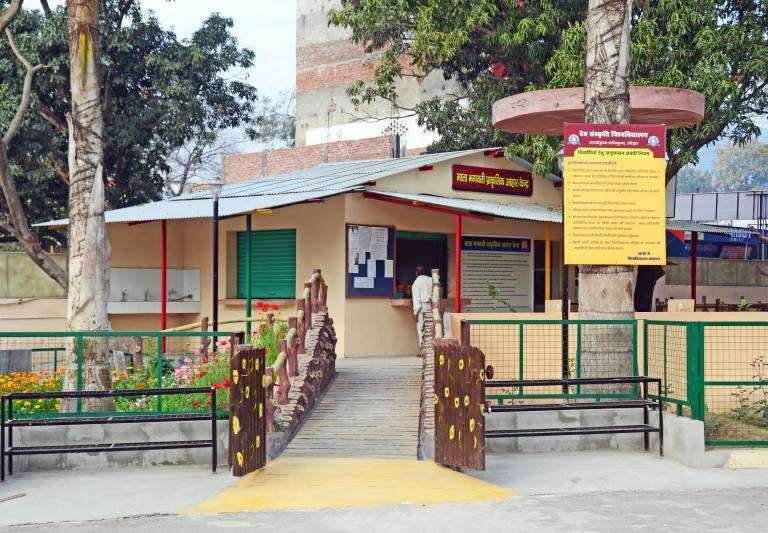
Prakritik Aahar Kendra (Healthy Cafe)
Connected to the health park is an establishment focused on self-sustenance and local entrepreneurship. One can expect fresh fruit and herbal juices, fruit shakes, sweet ladoos, fruit and sprout salads, dairy free milks and even all-healthy meals. These delicious treats can be enjoyed while appreciating the spectacular nature around.
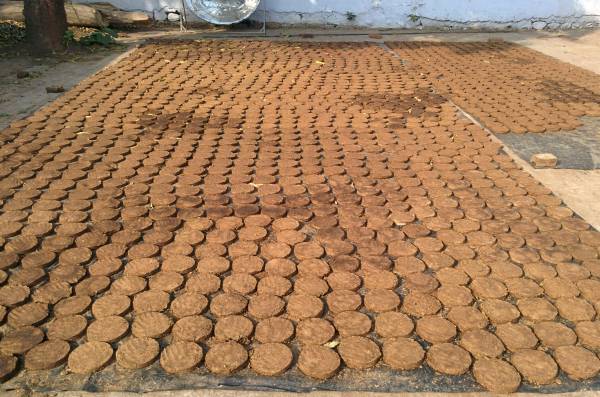
Cow products
With a sizeable cow ranch, the university receives a good amount of urine and cow dung. There is extensive research supporting the numerous benefits of these byproducts from cows. The scholars of the agricultural industry from the university have developed specific formulas of these byproducts along-with medicinal herbs to create valuable products. These all natural products will surely take some time to show the results, but the results are long lasting and genuine.
Pharmacy
The University has an in-house pharmacy where the herbs and medicinal plants from various research centers around the campus are tested and manufactured into powder or tablets to be dispatched. Special havan samagri (herbs for yagya) for 48+ ailments along with special yagya herbs for international use are also tested in the in-house laboratory, later manufactured and packaged for their respective use.
Paper Recycling Unit
Since the campus is a plastic free zone the University has made genuine efforts in using only eco-friendly paper for its daily use. In order to fulfill the paper demand and while also reducing the wastage the university has set up a paper recycling unit. In this unit, used answer sheets, question papers, official books, journals, etc. are recycled into beautiful paper bags that are sold at various stores within the premises, disposables for food service in cafes, routine office stationery like notepads, certificates, greeting cards, lamp shades and many other products. One can place orders to get personalized products which appear distinguished in comparison to ones from the market. For people interested in learning the art of paper making, there are courses offering detailed training, where one can learn to set up a small scale industry of their own.
Green-collared Modules
Plant Nursery
The plantation embedded in the campus creates a scenic and serene environment, while also adding a medicinal value to the campus. The Horticulture Department ensures that there are herbal as well as exotic species planted across the campus.
Biogas Plant
Biogas plants are an environmentally friendly and renewable energy source. A huge Biogas plant of rotating dome that handles around 1400 Kg of waste per day has been installed in the campus. The biogas produced is used as fuel in the cowshed laboratory to distill cow-urine and make different products.
Waste Segregation at Source
The University manages the solid waste collected from both Shantikunj ashram and the University campus on a daily basis to recycle and reuse it. The waste is divided into three categories: paper related, degradable kitchen and household waste, and non-degradable waste. The paper related waste is recycled to make paper products while the degradable kitchen waste is biodegraded by earthworms and used as manure.
Vermicomposting
Eighty percent of cow dung from gaushala along with horticulture waste is used to prepare vermi-compost in the campus. This vermi-compost is rich in humus, the organic component of the soil which possesses microorganism diversity and plant growth hormones. This vermi-compost system can act as a replacement for the chemical fertilizers. A specific species of annelid worms called as manure worms are used to prepare the compost. These worms are also reared separately which is known as the process of vermiculture, local farmers can procure them to prepare their own manure.
Organic Farming of Medicinal Plants
The University has various gardens where herbal plants of medicinal value are grown and later utilized to make herbal medicines for treating several ailments. The Centre of Holistic Health Management undertakes this responsibility. Plants of different species and therapeutic families are grown and maintained by the help of a dedicated team of knowledgeable gardeners and specialists along with enthusiastic students.
Solar Panels
A majority of the buildings at the University are built with south facing elevation to allow solar panels to be mounted on the top of the buildings. Solar heaters are used to produce hot water for cooking purposes around the campus.
Plant trees to graduate
The university has a unique to save the environment and transform the students into responsible citizens of tomorrow by involving them in environmental care. As a prerequisite to graduation, each student must plant at least five plants in the area where they perform their social internship and care for it for the stipulated time they reside there. It is then transferred to a responsible person of the area who will look after the plants till they grow into trees and no longer need careful attention. This helps one become environmentally conscious and develop the emotional quotient of caring and loving for others.
Plastic Free Campus- Zero Emission Initiatives
The University takes earnest measures to minimize its carbon footprint to zero by Reducing, Reusing, and Recycling its consumption. Single use plastic is banned inside the campus. The University also recycles by creating its own handmade paper. This is to be noticed that the University not only practices zero emission approach but it also offers free training for the same to the villagers, technical people, and interested researchers.

